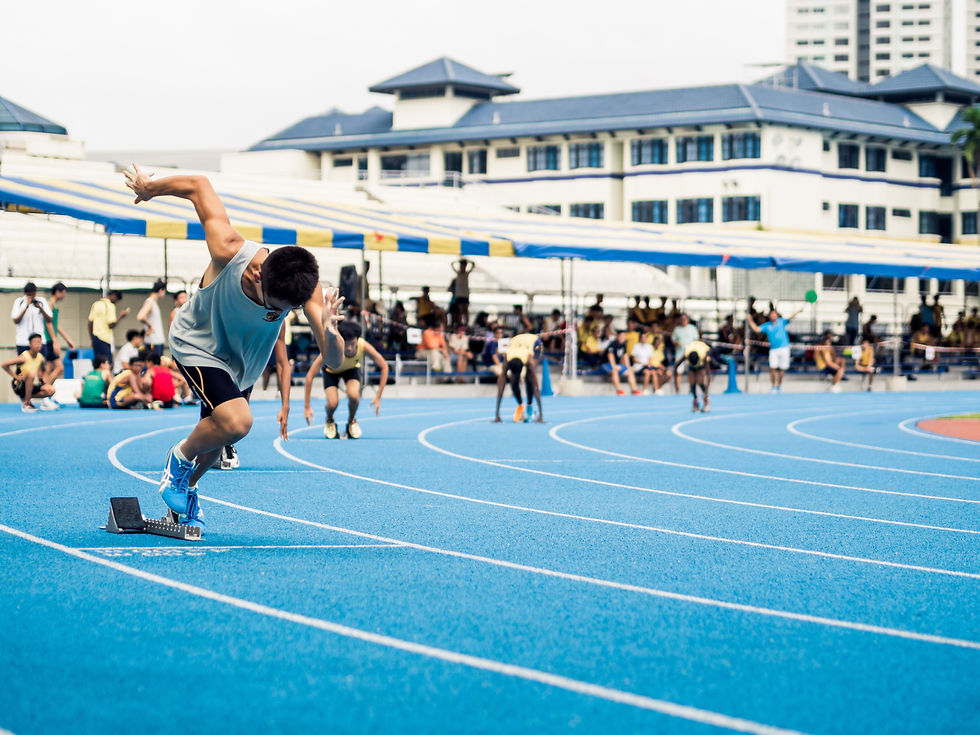Unlocking Peak Performance: The Vital Role of Rest and Recovery
- Phil McNab
- Jun 5, 2025
- 3 min read
In the intense world of Mixed Martial Arts (MMA), athletes often push their physical and mental limits to achieve their best.
While dedication is key to success, one crucial element often gets overlooked: rest and recovery. Understanding how rest impacts performance is vital for MMA fighters. This article covers the importance of recovery, how often fighters should rest, and the consequences of neglecting this essential aspect of training.
Why Rest and Recovery Matter
Rest and recovery are essential, not optional.
When athletes undergo rigorous training, their muscles experience micro-tears, leading to soreness and fatigue. For instance, studies show that muscle recovery can take between 24 to 72 hours to fully regenerate. Without adequate rest, these muscles struggle to repair, resulting in decreased strength and stamina during bouts.
Recovery time also allows the central nervous system to recuperate. Overtraining can lead to burnout, as noted by research indicating that over 60% of athletes experience symptoms of overtraining at some point in their careers. Notably, this can cause reduced performance and an increased likelihood of injuries.
Moreover, recovery is vital for hormone regulation. High-stress training can increase cortisol levels, which negatively affects health. For example, studies have shown that elevated cortisol can lead to weight gain and decreased muscle mass. In contrast, proper rest can enhance testosterone production, fostering muscle growth and effective recovery.
How Often Should You Rest Between MMA/Gym Sessions?
The frequency of rest varies by individual, depending on factors like training intensity and overall experience. Generally, fighters should incorporate active recovery days into their routines.
A good rule of thumb is to alternate between high-intensity training days and lighter days. For example, after a tough sparring session, following up with a day focused on lighter drills, flexibility exercises, or complete rest can be beneficial. This balance allows the body to heal while keeping the mind engaged.
Most experts recommend taking at least one full rest day each week. Active recovery options include yoga, swimming, or light cardio. These activities help maintain movement without putting too much strain on the body.
Listening to your body is crucial; if fatigue lingers longer than usual, consider taking additional rest time.
Pros of Proper Rest and Recovery
Prioritizing rest and recovery yields numerous benefits for MMA fighters. First, adequate recovery enhances muscle repair and growth. Fresh muscles not only improve performance but also reduce the risk of injury, creating a safer training environment.
Second, mental clarity is significantly improved with proper rest. When fighters allow time for recovery, they return to training with increased focus and motivation. A study indicated that athletes who prioritize recovery can experience up to a 25% increase in performance due to enhanced mental sharpness.
Moreover, proper recovery contributes to better workout quality. Athletes can push their limits effectively when they are well-rested, avoiding the fatigue that usually leads to poor performance and technique.
Additionally, valuing rest highlights an athlete’s commitment to their craft. It shows an understanding of sustainability in the sport, making fighters not only better competitors but also influential role models for aspiring athletes.
Cons of Not Resting Properly
Failing to recognize the need for rest can result in serious consequences. Overtraining syndrome is a significant risk, characterized by extended fatigue and decreased performance. Research indicates that approximately 30% of athletes experience overtraining at some point, which can lead to chronic injuries and setbacks.
Mental fatigue is another consequence of neglecting rest. Fighters may face burnout, causing a drop in motivation and enthusiasm for training. Since mental resilience is crucial in MMA, maintaining a healthy balance between training and recovery is essential.
Injuries may also result from inadequate recovery. Continuous strain can lead to long-term problems, sidelining fighters for weeks or even months. The psychological impact of being unable to train or compete can be equally troubling.
Finally, disregarding recovery can lead to a noticeable dip in performance. Athletes might find themselves plateauing or regressing, suffering from fatigue and declining physical condition.
Final Thoughts on Rest and Recovery
In the pursuit of greatness in ANY form of sport, rest and recovery should not be ignored. Recognizing their significance is essential for serious athletes looking to maximize their potential. By implementing a balance of intense training and appropriate rest, fighters can enhance their performance and longevity in the sport.
Focusing on recovery not only improves physical and mental capabilities but also nurtures a culture of resilience in training. Achieving success isn’t just about relentless hard work; it’s also about understanding when to push and when to pause.

By committing to both training and recovery, athletes will unlock their true potential, paving the way for success in the competitive arena of Mixed Martial Arts.



Comments